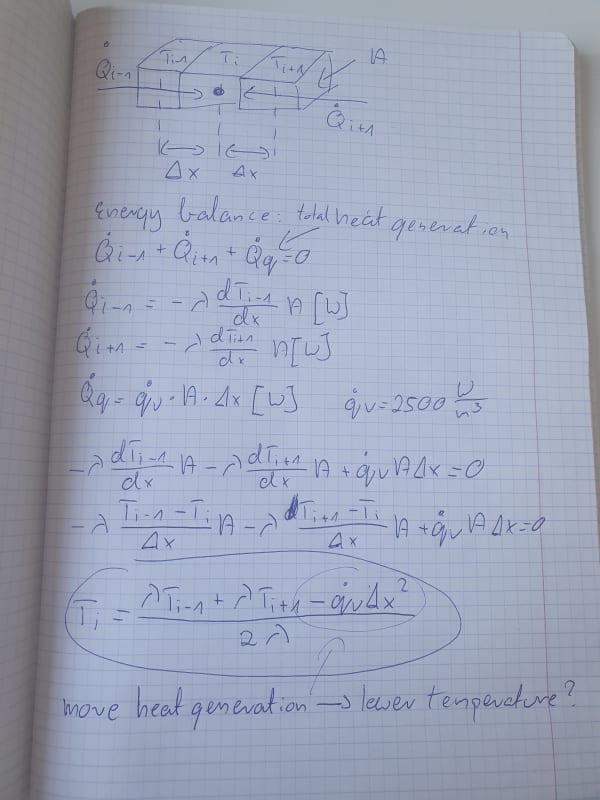Dominik9515
Student
- Mar 27, 2022
- 1
Recently, I started my adventure with numerical methods.
I am considering a rod with a heat generation of 2500 W / m ^ 3.
In addition, I have the boundary conditions at the ends of the bar given (temperatures).
I apply Fourier's law and convert derivatives to difference quotients.
The result of the temperature (i) is impossible, because by increasing the heat generation, the temperature will decrease. What am I doing wrong?
I have presented the problem in the attachment. Thank you very much in advance for your help.

I am considering a rod with a heat generation of 2500 W / m ^ 3.
In addition, I have the boundary conditions at the ends of the bar given (temperatures).
I apply Fourier's law and convert derivatives to difference quotients.
The result of the temperature (i) is impossible, because by increasing the heat generation, the temperature will decrease. What am I doing wrong?
I have presented the problem in the attachment. Thank you very much in advance for your help.

